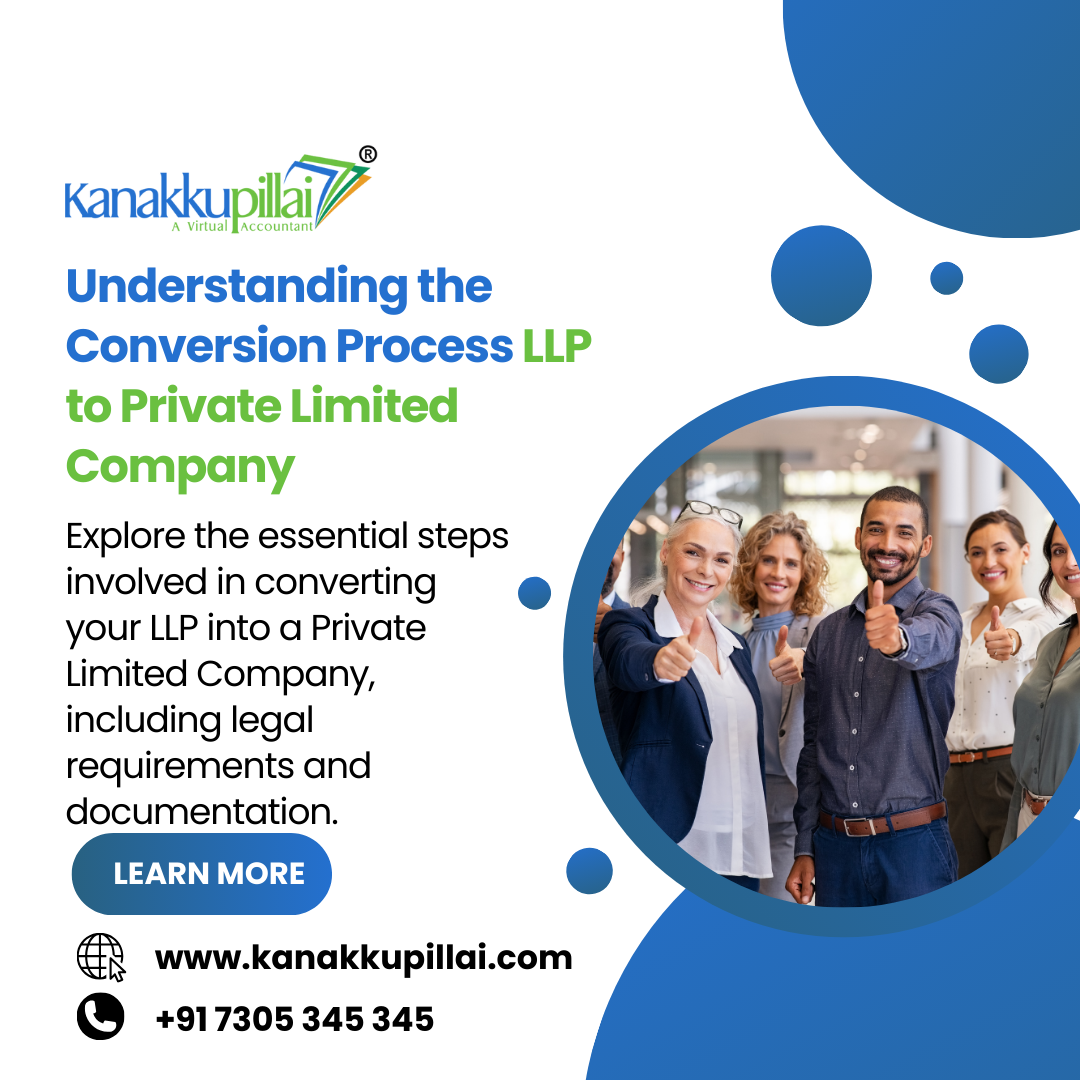Introduction
Converting a Limited Liability Partnership (LLP) to a Private Limited Company is a significant step for many businesses seeking growth and enhanced investment opportunities. This blog post will provide a comprehensive guide on the conversion of LLP to a Private Limited Company, covering the reasons for conversion, the necessary conditions, the detailed process, and the implications involved.
What is an LLP?
A Limited Liability Partnership (LLP) combines the features of both partnerships and corporations. It offers limited liability to its partners while allowing them to manage the business directly. However, as businesses evolve, many LLPs find it beneficial to transition into a Private Limited Company for various reasons, including better funding opportunities and enhanced credibility.
Why Convert from LLP to a Private Limited Company?
1. Enhanced Investment Opportunities
Private Limited Companies attract more investors, including venture capitalists and private equity firms, due to their ability to issue shares. In contrast, LLPs cannot issue shares, which limits their fundraising options.
2. Tax Benefits
Converting from an LLP to a Private Limited Company can offer various tax advantages. In some jurisdictions, companies are taxed at a lower rate than LLPs, and the conversion itself is often exempt from capital gains tax.
3. Increased Credibility
Operating as a Private Limited Company can enhance your business's credibility with customers, suppliers, and potential investors. This structure is often perceived as more stable compared to an LLP.
4. Future Growth Potential
Private Limited Companies have the flexibility to convert into Public Limited Companies in the future, allowing for further expansion and capital-raising opportunities.
Conditions for Conversion
Before initiating the conversion of LLP to a Private Limited Company, certain conditions must be met:
- Minimum Partners: At least two partners must be in the LLP, who will also become directors and shareholders in the new company.
- Approval from Partners: All partners must agree to the conversion.
- Compliance with Statutory Requirements: The LLP must have fulfilled all compliance requirements up to date.
- No Objection Certificate (NOC): An NOC must be obtained from the Registrar of Companies (RoC).
- Public Notification: The conversion must be advertised in at least two newspapers—one in English and one in a vernacular language.
The Conversion Process
The process of converting an LLP into a Private Limited Company involves several steps:
Step 1: Obtain Name Approval
The first step is to secure approval for the new company name from the RoC by submitting a Reserve Unique Name (RUN) form. This approval is valid for 20 days for new companies.
Step 2: Obtain Digital Signature Certificates (DSC) and Director Identification Numbers (DIN)
All designated directors must acquire DSCs and DINs. These are essential for filing documents electronically with the RoC.
Step 3: File Form URC-1
File Form URC-1 within 30 days of name approval. This form requires various documents, including:
- Details of partners and their shareholdings
- Affidavit from directors confirming they are not disqualified from being directors
- A copy of the LLP agreement
- A certified copy of registration verified by at least two partners.
Step 4: Draft Memorandum of Association (MOA) and Articles of Association (AOA)
Prepare and submit the MOA and AOA to outline the company's objectives and regulations. These documents are crucial for formalising your new business structure.
Step 5: Additional Filings
After submitting URC-1, other forms such as DIR-12 (for directors), INC-22 (for registered office), and INC-9 (declaration by subscribers) need to be filed with requisite fees.
Step 6: Publication Requirement
Publish an advertisement in local newspapers regarding the conversion process within 21 days after filing URC-1, seeking any objections from stakeholders.
Compliance and Regulatory Considerations
Once the RoC approves your application, you will receive a Certificate of Incorporation for your new Private Limited Company. Post-conversion, it's essential to comply with ongoing regulatory requirements such as annual filings, maintaining statutory registers, and adhering to corporate governance norms.
Conclusion
The conversion of LLP to a Private Limited Company can unlock numerous benefits, including enhanced investment prospects, tax advantages, and increased credibility. However, it requires careful planning and adherence to legal procedures. By following this guide, you can navigate through the conversion process smoothly and position your business for future growth.





Comments